Elche, located in the Valencia region of Spain, has a population of nearly 240,000, making it the third largest city in the Valencian Community. Visitors often travel to Elche to explore its famous Palm Grove, the Palmeral of Elche, recognised as a UNESCO World Heritage Site. However, over the years, many other attractions in the city have also gained popularity with tourists. The city boasts a rich history dating back to 500 BC, when the Iberians founded the city of Hélike on a small hill, resulting in a wealth of monuments to explore alongside its palm gardens. Conveniently situated just 20 minutes from Alicante, it is like Novelda an ideal destination for a day trip.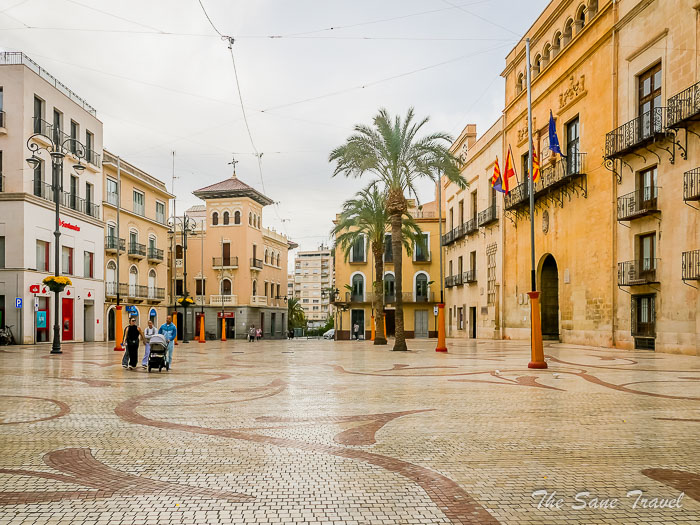
The residents of Elche take pride in two iconic symbols: the Palm Grove and the Lady of Elche.
Palm Grove
The Palm Grove of Elche, declared a World Heritage Site in 2000, is the largest in Europe and a city symbol. Comprising thousands of palm trees, the Palm Grove dates back to prehistoric times, reaching its peak during the Muslim period when the palm trees were laid out in orchards. The Arabs, who established an extensive irrigation network while founding the new city in the 8th and 9th centuries, played a key role in its expansion. The Palm Grove covers 144 hectares and contains nearly 100 orchards with 70,000 date palms. The boundaries of the plots are mostly square or rectangular, separated by fences made of palm leaves or stone walls. The palms in Elche belong to the species Phoenix dactylifera L., capable of growing up to 30 metres tall and living for over 300 years. These date palms produce edible dates and milky white palms exported for decoration and religious processions. 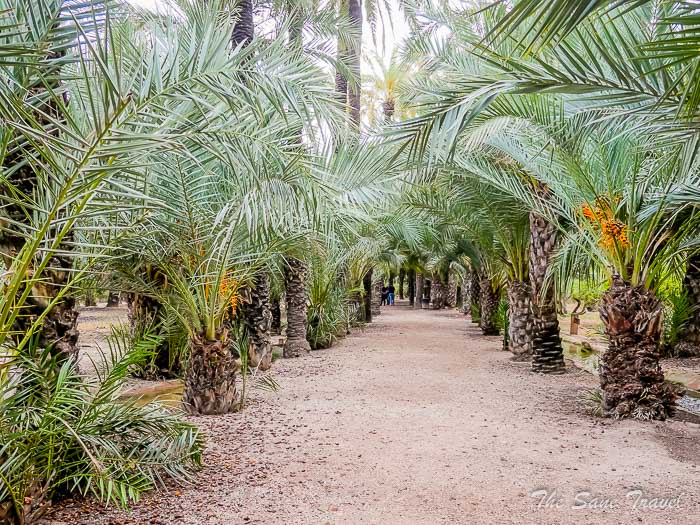 The Municipal Park, located east of the River Vinalopó, contains the largest concentration of palm trees.
The Municipal Park, located east of the River Vinalopó, contains the largest concentration of palm trees.
Lady of Elche
The Lady of Elche is a 56-centimetre-tall limestone bust of a woman, believed to date back to the 5th or 4th century BC. It was unearthed in 1897 at an ancient Roman site near Elche in Alcudia, just two kilometres south of the city. This captivating sculpture, made of fine orange limestone, continues to puzzle researchers regarding its origin and purpose. Adorned with jewellery typical of the Iberians, such as circular earrings and necklaces with small spheres, the Lady of Elche is considered a masterpiece of Iberian art. Originally purchased by the Louvre Museum, it was later returned to Spain in 1941. It is now housed at the National Archaeological Museum of Spain in Madrid, following a brief exhibition in Elche in 1965. The sculpture remains one of the most significant archaeological artefacts of Iberian culture. Throughout Elche, you will find several reproductions of the statue, as well as smaller replicas in souvenir shops.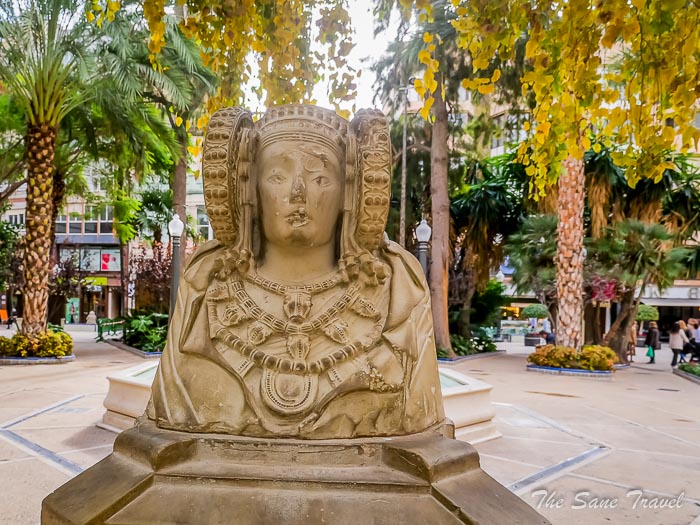
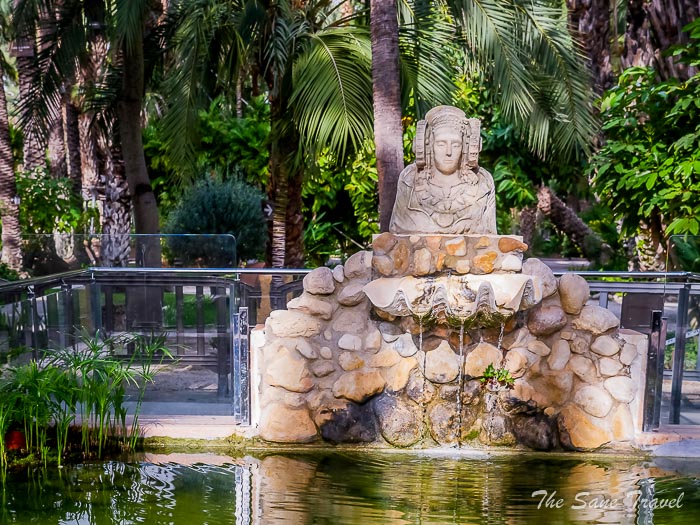
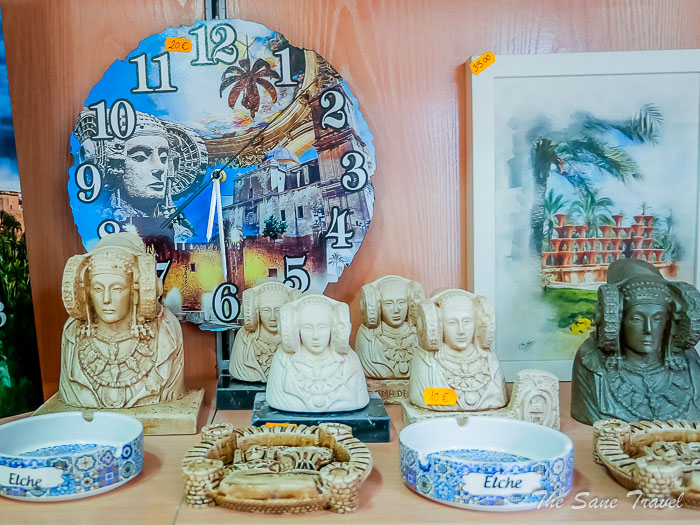
Tourist train
Begin your exploration of Elche aboard the Trenet, the city's tourist train. The train will take you on a 40-minute journey through some of the most iconic areas of the city, including the Municipal Park and a section of the historic Palm Grove Path. The tour includes four stops at various points of interest. The train departs from the Tourist Office, situated next to Municipal Park.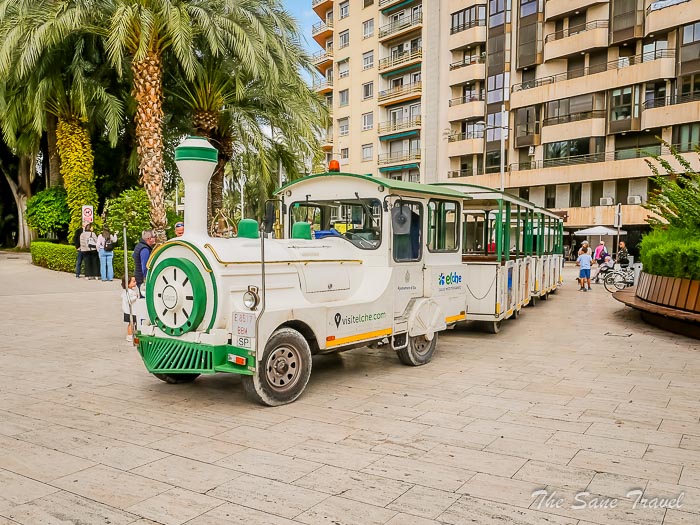
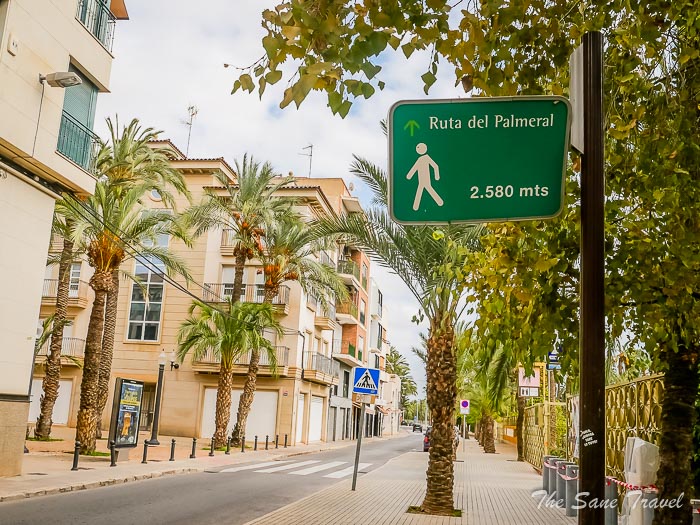
Municipal Park
The Municipal Park was created from the old orchards of Mare de Déu, del Xocolater, del Colomer, de Baix, and del Real, which were mainly owned by the Virgen de la Asunción, as a result of Dr Nicolau Caro's devotion to her in the 17th century. Dr Caro came from a well-known family in Elche and had no surviving descendants, so he named the patron saint of Elche as his beneficiary. In the 20th century, the park was transformed into a garden. 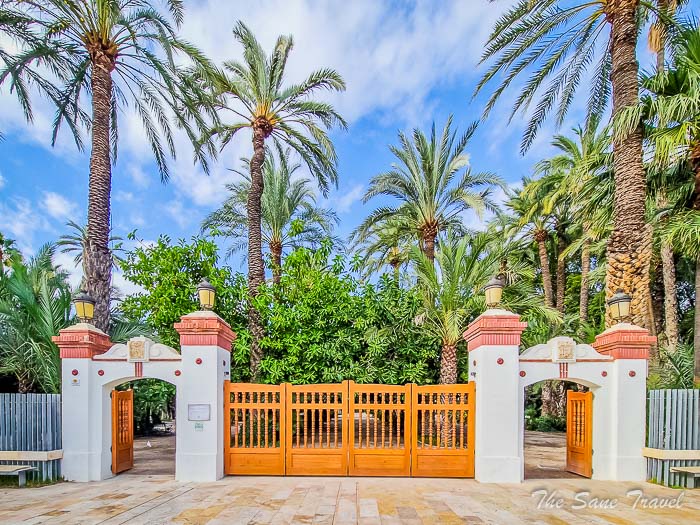
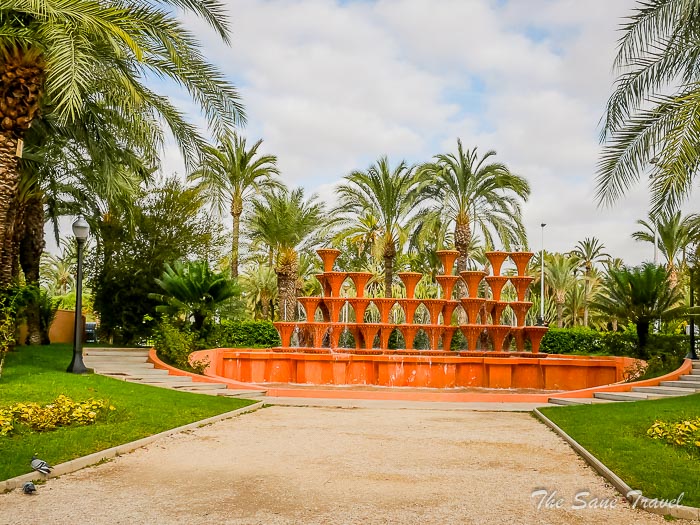
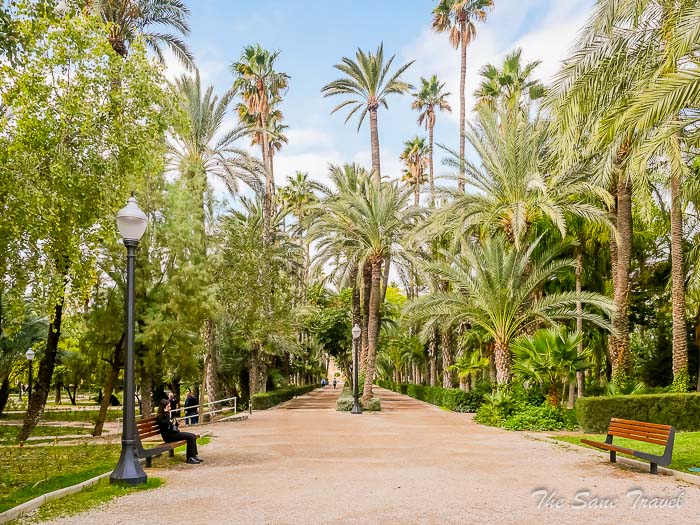 Within its boundaries, visitors can find the Tourist Information Office, the Visitor's Centre, the bandstand, and the historic Molí del Real mill, which features the ancient irrigation channel known as Acequia Mayor del Pantano, a significant hydraulic system from the city's Islamic past.
Within its boundaries, visitors can find the Tourist Information Office, the Visitor's Centre, the bandstand, and the historic Molí del Real mill, which features the ancient irrigation channel known as Acequia Mayor del Pantano, a significant hydraulic system from the city's Islamic past.
Huerto del Cura Garden
The Huerto del Cura Garden is a renowned part of Elche's Palm Grove, recognised as a National Artistic Garden since 1943. Visitors can peacefully wander along the garden’s paths, admiring the unique mix of Mediterranean and tropical plants while enjoying the tranquillity of this urban oasis. The garden features ponds with fish and birds, further enhancing the serene atmosphere.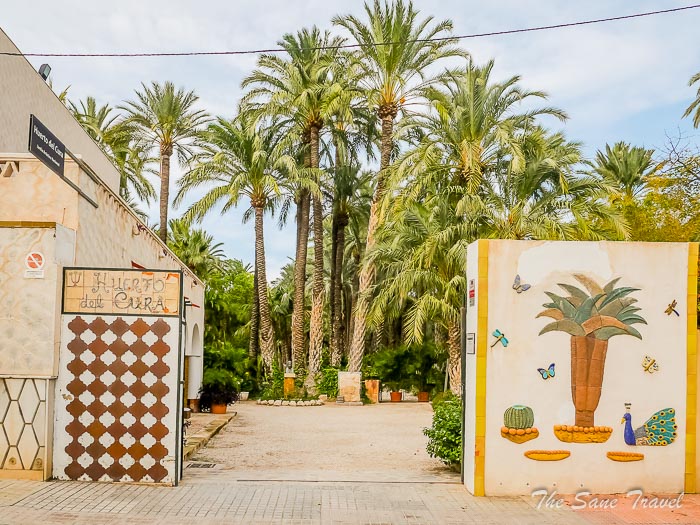
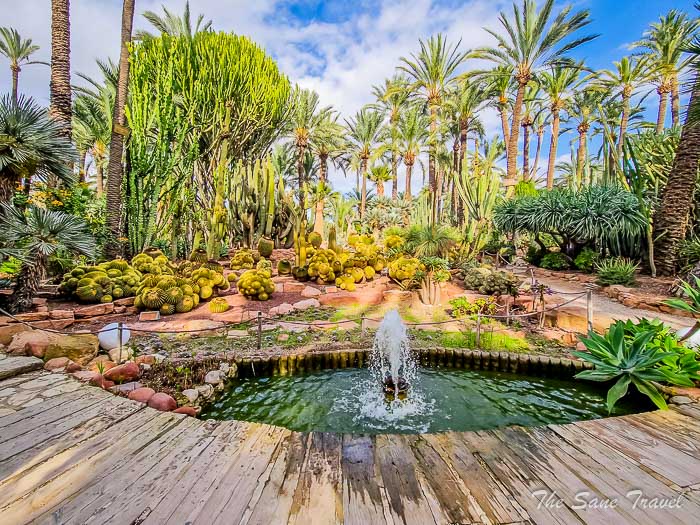
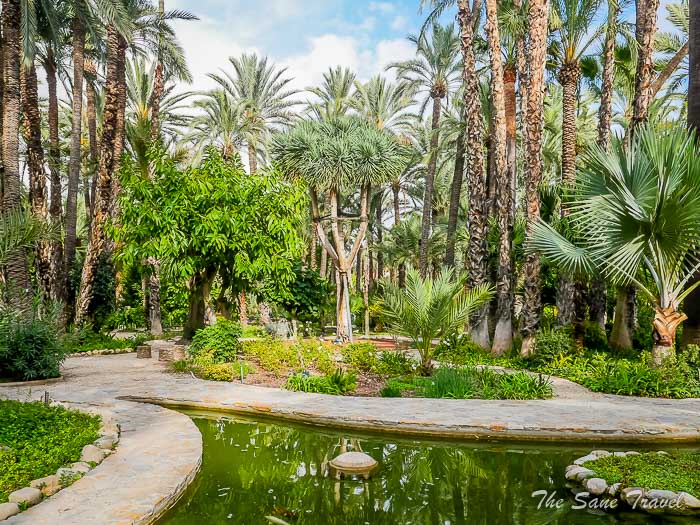
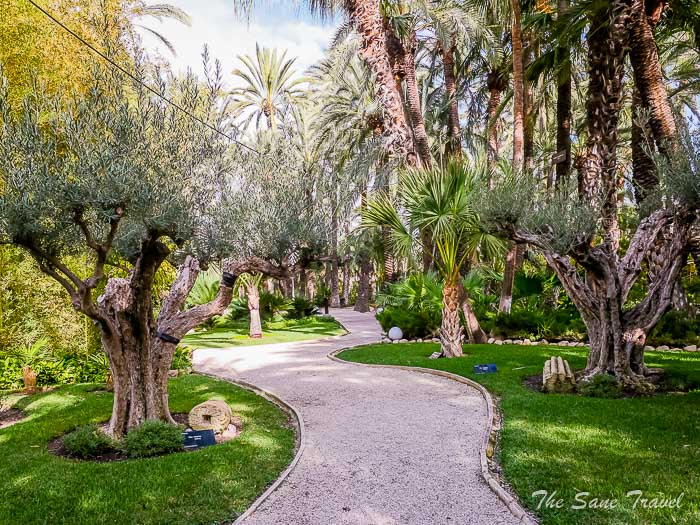
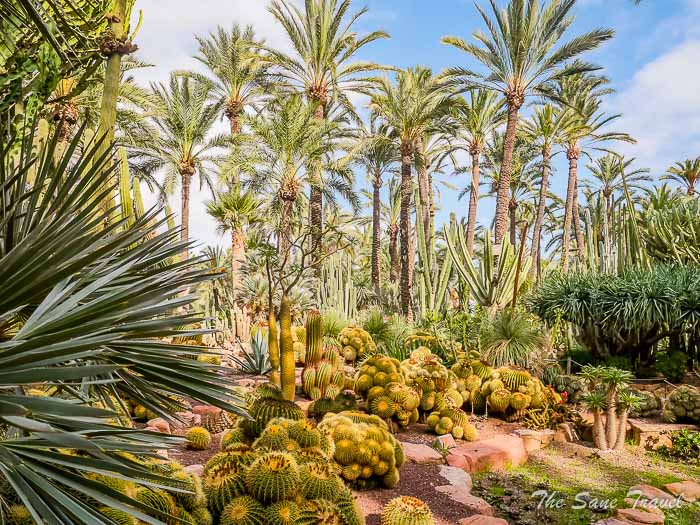 The star attraction of the Huerto del Cura Garden is the Imperial Palm Tree, named after Empress Elisabeth of Austria, who was captivated by its beauty in 1894. This impressive tree consists of a male date palm with seven symmetrical branches growing from the same trunk.
The star attraction of the Huerto del Cura Garden is the Imperial Palm Tree, named after Empress Elisabeth of Austria, who was captivated by its beauty in 1894. This impressive tree consists of a male date palm with seven symmetrical branches growing from the same trunk. 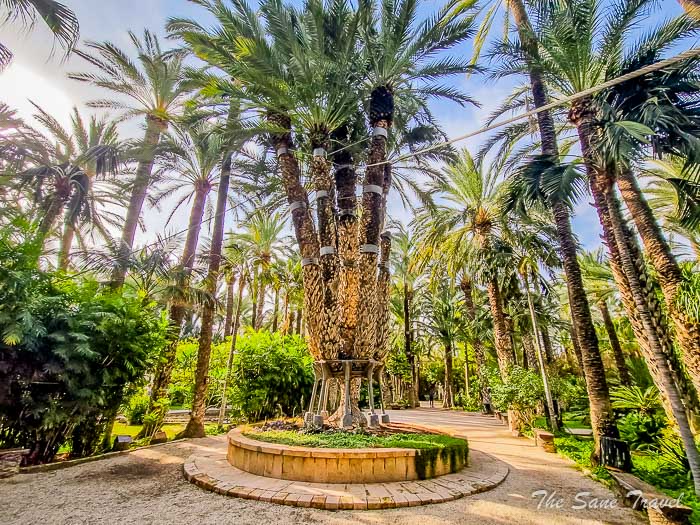 There is an entry fee for this location; however, I assure you that your visit will be well worth it.
There is an entry fee for this location; however, I assure you that your visit will be well worth it.
Address: Carrer Porta de la Morera, 49
Palm Grove Museum
Visitors can enhance their enjoyment and appreciation of Elche's historic Palm Grove by learning about its history, culture, and characteristics. In 2000, UNESCO designated Palm Grove as a World Heritage Site, prompting the City Hall to establish the Palm Grove Museum and Interpretation Centre. Housed in a traditional 19th-century building within the San Plácido Grove, the museum showcases the history, practices, and evolution of palm trees through videos, displays, and interactive exhibits. Visitors can also book a guided tour with a skilled palm worker to learn the art of palm plaiting in the workshop. 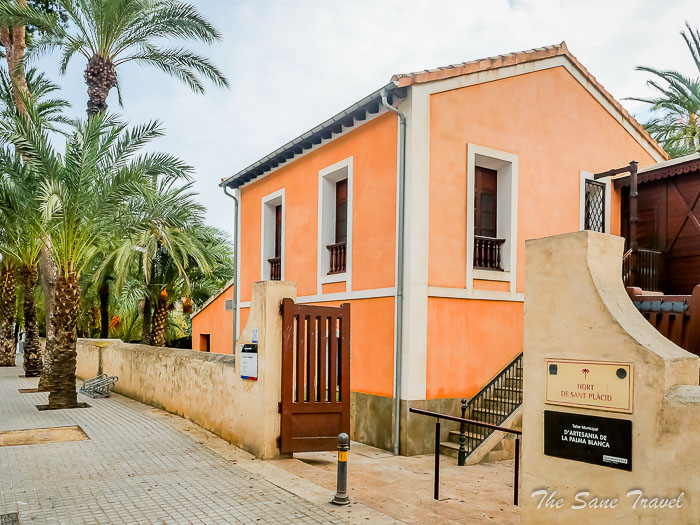
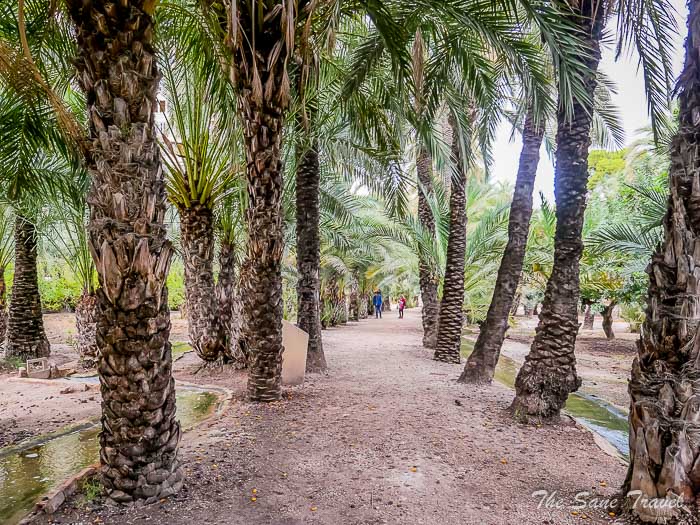
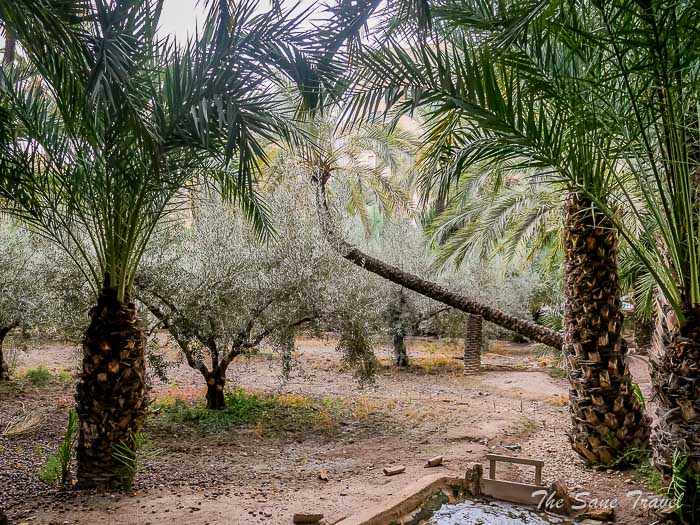 I had the chance to try dates directly from a palm tree for the first time.
I had the chance to try dates directly from a palm tree for the first time.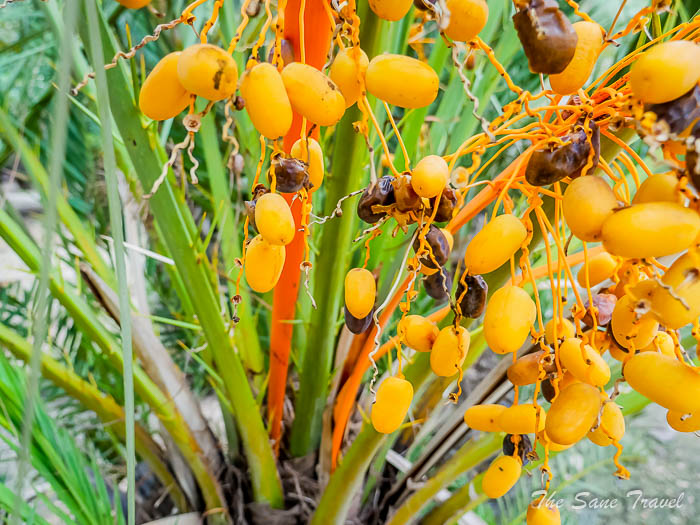
Address: Calle Porta de la Morera, 12
Altamira Castle
Altamira Castle, also known locally as Palacio de Altamira or Alcázar de la Señoria, is located in the centre of Elche, near the River Vinalopó. The castle was constructed between the 11th and 13th centuries during Almohad rule as part of the city walls. In the 15th and 16th centuries, the castle was expanded under the ownership of Gutierre de Cárdenas, Lord of Elche. Its current appearance is mainly from this period. From the 16th century until the 19th century, the castle served as the residence of the Lords of Elche. In the 18th century, under the ownership of the Count of Altimira, the southern facade was converted into a grand two-storey house. Additionally, from the 18th century until 1959, the west wing of the castle was used as a prison.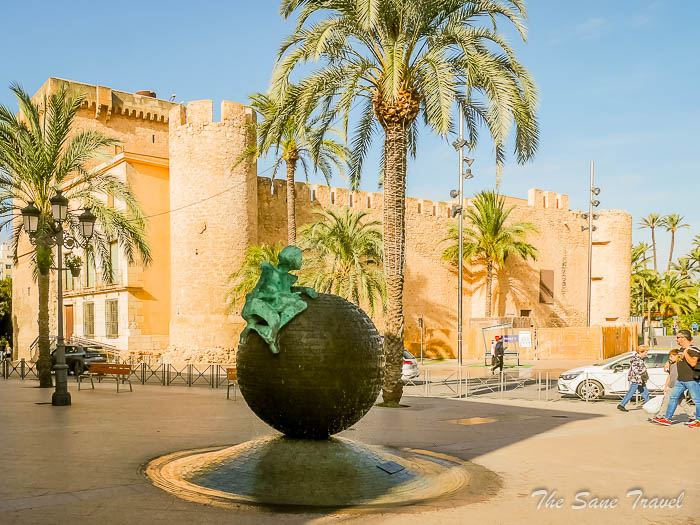
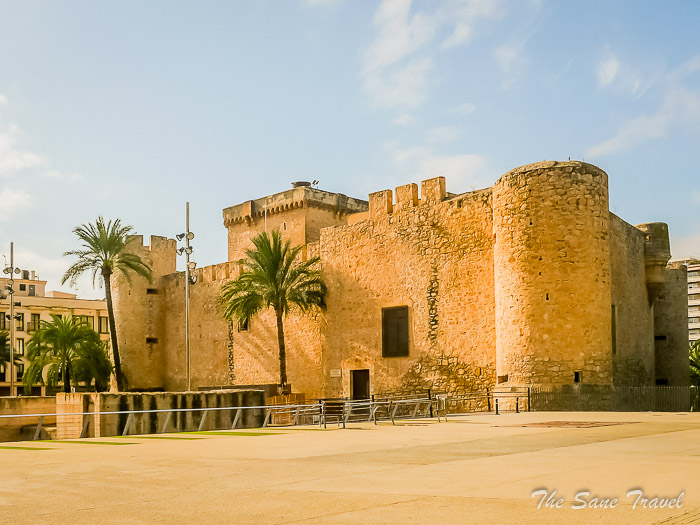 Today, the castle houses the Municipal Archaeological Museum, which showcases archaeological findings from La Alcudia and Elche Park, including artefacts from various historical periods such as the Bronze and Copper Ages, as well as Roman and Arab eras. The museum also features a replica of the Lady of Elche, with the original being housed in the National Archaeological Museum.
Today, the castle houses the Municipal Archaeological Museum, which showcases archaeological findings from La Alcudia and Elche Park, including artefacts from various historical periods such as the Bronze and Copper Ages, as well as Roman and Arab eras. The museum also features a replica of the Lady of Elche, with the original being housed in the National Archaeological Museum.
Address: Diagonal del Palau, 7
Basilica of Santa Maria
The Basilica of Santa Maria was constructed on the site of an ancient mosque and has undergone several architectural changes throughout the years. The current basilica, built in the 17th century, features a Valencian Baroque facade and combines Neoclassical, Baroque, and Renaissance styles. It has three intricately carved doorways, four chapels, and a large dome with blue tiles visible from various points in the city. 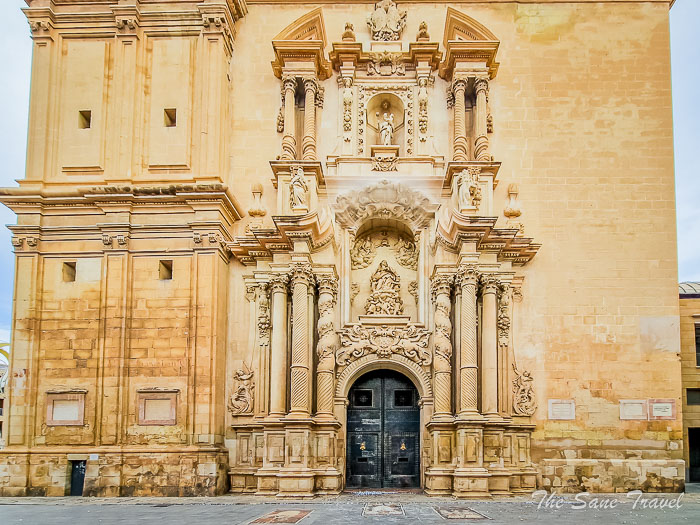
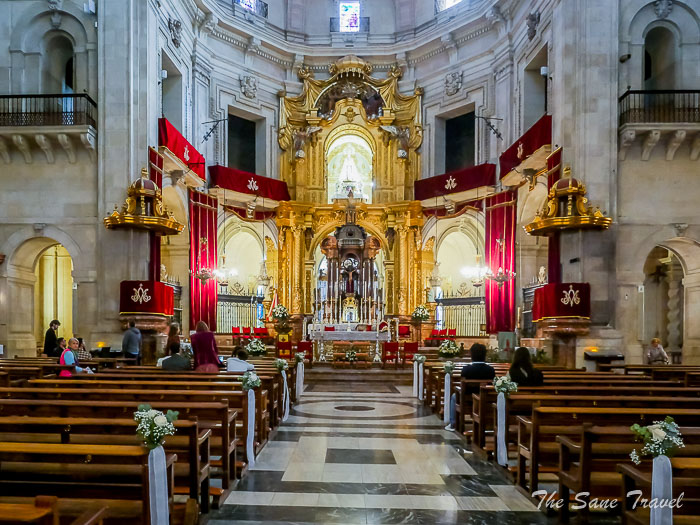
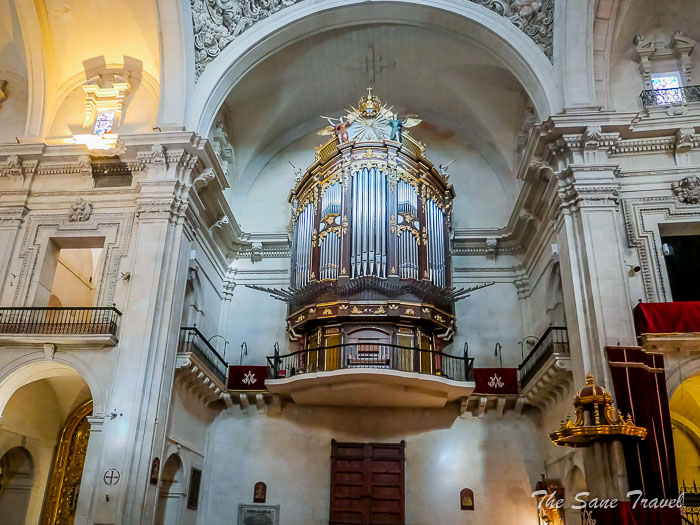 The basilica is well-known for hosting the annual Mystery Play of Elche, a traditional event that celebrates the dormition, assumption, and crowning of the Virgin Mary. This two-act chanted drama, performed on the 14th and 15th of August, is considered a symbol of the city's identity and has long inspired both residents and visitors. Next to the basilica entrance stands a bronze sculpture depicting three apostles engaged in the Mystery Play.
The basilica is well-known for hosting the annual Mystery Play of Elche, a traditional event that celebrates the dormition, assumption, and crowning of the Virgin Mary. This two-act chanted drama, performed on the 14th and 15th of August, is considered a symbol of the city's identity and has long inspired both residents and visitors. Next to the basilica entrance stands a bronze sculpture depicting three apostles engaged in the Mystery Play.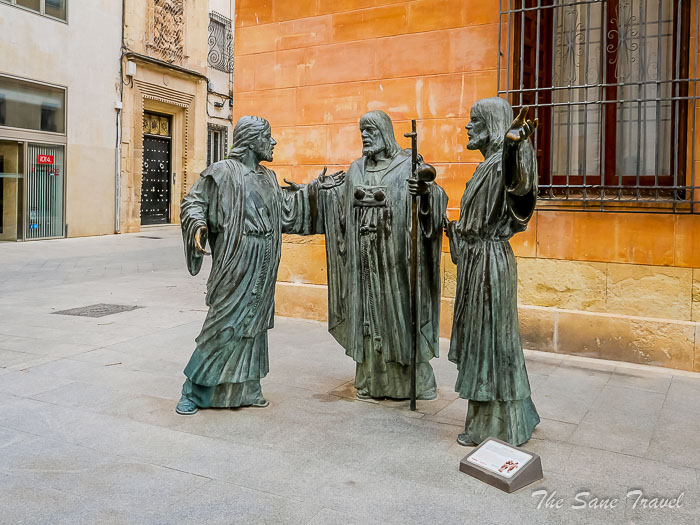
Tres Marias
There are several statues in the city dedicated to the Mystery Play of Elche, including one known as Tres Marias. The Plaza de Santa Isabel offers a historical atmosphere where visitors can admire the Tres Marias statue, which depicts the Virgin Mary, Mary Magdalene, and Mary of Cleofas, as portrayed in the Mystery Play of Elche.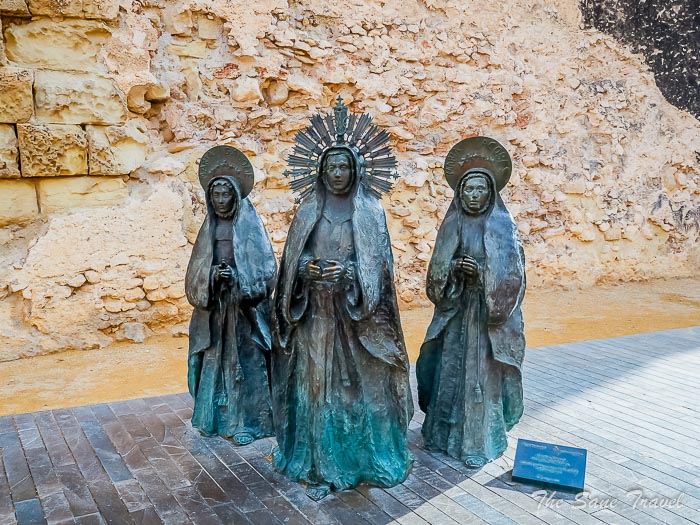
Calahorra Tower
The Calahorra Tower, a 12th-century Islamic watchtower, was strategically situated next to the main access road from Alicante to defend the city. Originally part of the ancient city wall, the tower lost 10 of its 25 metres in height due to an earthquake in 1829. Built in the Almohad style at the end of the 13th century, the Calahorra Tower, along with a smaller watchtower, guarded the main city gate, the Lucentina. Over the centuries, the tower was transformed into an extramural manor house with two floors and a basement for grain storage. The renovations carried out by Elche noblemen significantly altered the structure, while the Neo-Arabic style windows on the west side and the crenellated parapets date back to the 19th century.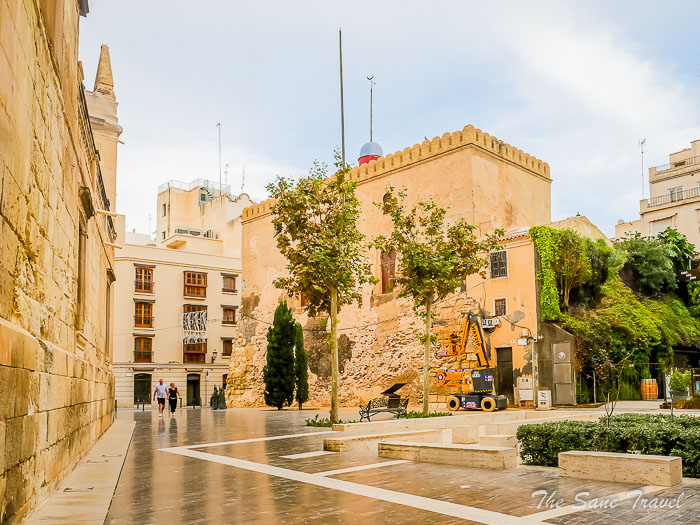 The tower now features early 20th-century frescoes depicting panoramic views of the city. Of particular note is a room on the ground floor with Egyptian and Masonic decorations, which served as the meeting place for the Masonic Lodge established in Elche in 1858.
The tower now features early 20th-century frescoes depicting panoramic views of the city. Of particular note is a room on the ground floor with Egyptian and Masonic decorations, which served as the meeting place for the Masonic Lodge established in Elche in 1858.
Address: Calle Uberna, 14
Plaza de la Glorieta
The Plaza de la Glorieta is situated in the heart of Elche, near the City Hall, where the Plaza i Baix is located. Established in the late 18th century, it has undergone multiple changes and renovations. 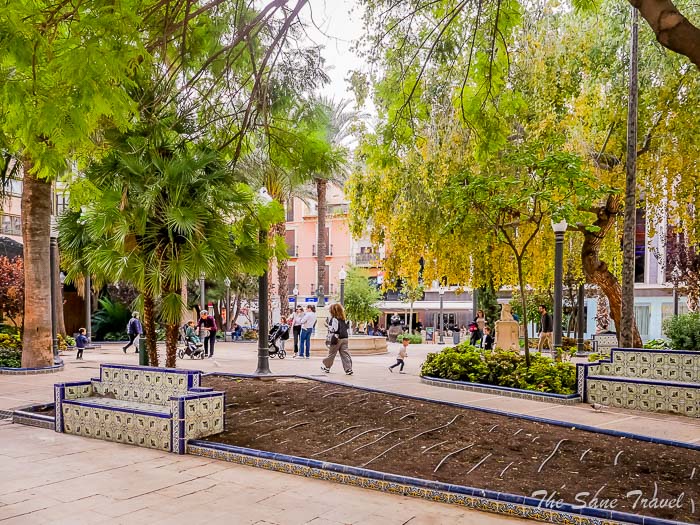 At the centre of La Glorieta stands a white marble fountain with an angel inspired by the Mystery Play of Elche.
At the centre of La Glorieta stands a white marble fountain with an angel inspired by the Mystery Play of Elche. 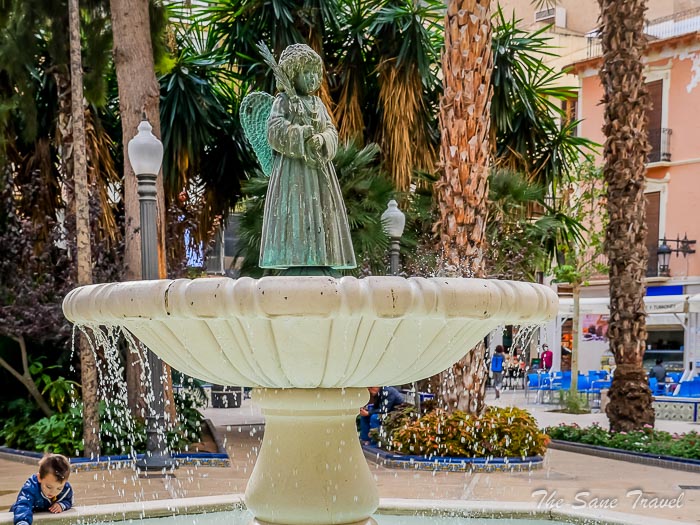 Nearby is a replica of the Lady of Elche.
Nearby is a replica of the Lady of Elche. 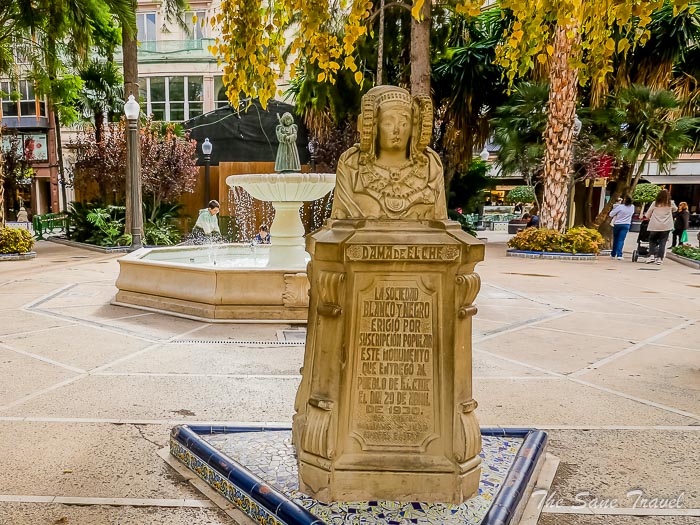 This square is very popular with the locals of Elche, who enjoy its charming and peaceful atmosphere day and night. The area offers a wide array of dining options, including restaurants, bars, cafes, ice cream parlours, and pastry shops, all complemented by shopping streets.
This square is very popular with the locals of Elche, who enjoy its charming and peaceful atmosphere day and night. The area offers a wide array of dining options, including restaurants, bars, cafes, ice cream parlours, and pastry shops, all complemented by shopping streets.
Corredora Street
The street known as Corredora got its name from the horse races that were once held there, as 'correr' in Spanish means 'to run'. This pedestrian street connects several public spaces and offers abundant shopping opportunities. 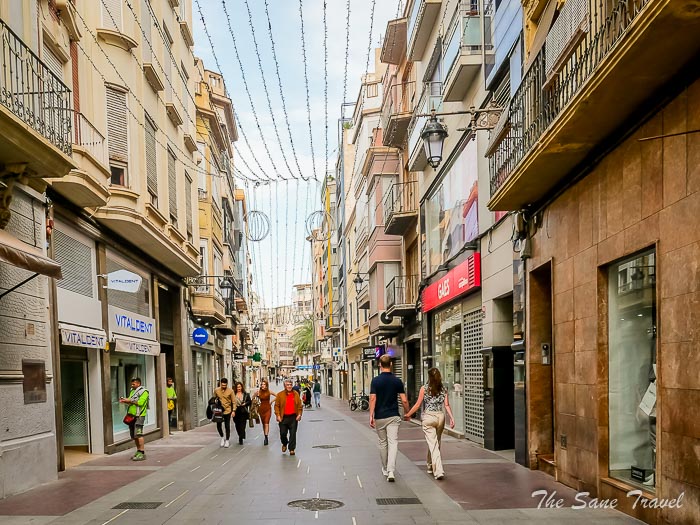 Elche is known as the city of shoemakers, with many shoe brands based there. Panama Jack, founded by Antonio Vicente, is one of the most popular Spanish shoe brands. Other well-known brands include Garvalín, Ana Román, and Salvador Artesano, with the latter offering free factory tours. There is also a shoe shop on Corredora Street. Do not miss the chance to purchase a new pair of shoes in Elche.
Elche is known as the city of shoemakers, with many shoe brands based there. Panama Jack, founded by Antonio Vicente, is one of the most popular Spanish shoe brands. Other well-known brands include Garvalín, Ana Román, and Salvador Artesano, with the latter offering free factory tours. There is also a shoe shop on Corredora Street. Do not miss the chance to purchase a new pair of shoes in Elche.
Plaza de Baix
This city square is home to the 15th-century City Hall and the famous 18th-century clock tower, Calendura & Calendureta. Situated in front of the City Hall, the square serves as a central hub connecting various streets and old roads.  The entrance to the city was through a large door known as Puerta de Guardamar. The tower is adorned with beautiful ashlar decorations and a central plaque featuring the city's coat of arms. The upper part of the tower features a series of small windows, creating a picturesque archway. In the late 18th century, balconies were added to enhance the building's style and the overall appearance of the square.
The entrance to the city was through a large door known as Puerta de Guardamar. The tower is adorned with beautiful ashlar decorations and a central plaque featuring the city's coat of arms. The upper part of the tower features a series of small windows, creating a picturesque archway. In the late 18th century, balconies were added to enhance the building's style and the overall appearance of the square.
City Hall
The City Hall is housed in a beautifully rebuilt 15th-century palace, with the Torre del Concejo, a tower from the medieval city wall, as its oldest part. Built in 1441 by Bartolomé Vidal of Alicante, the tower is nearly square and was originally part of the medieval city wall, serving as a passageway between the Lower Square and Upper Square within the walled city. In addition to its practical function, the tower features a grand Gothic arch with three pointed vaults and two access points leading to municipal buildings, which are generally closed to the public. Thousands of Elche's citizens pass beneath this arch every day.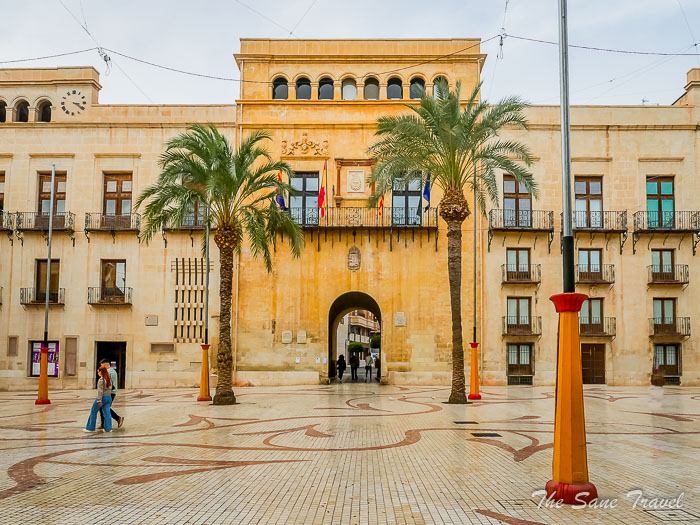
Sobre la crítica statues
Joan Castejón, born in Elche in 1945, is a well-known Spanish artist and sculptor, recognised for his contributions to social realism in Spain. The sculpture group Sobre la crítica (On Criticism), displayed in front of the City Hall, was created in 2006. It depicts a painter holding a brush on the left side deeply focused on the painting within the painting.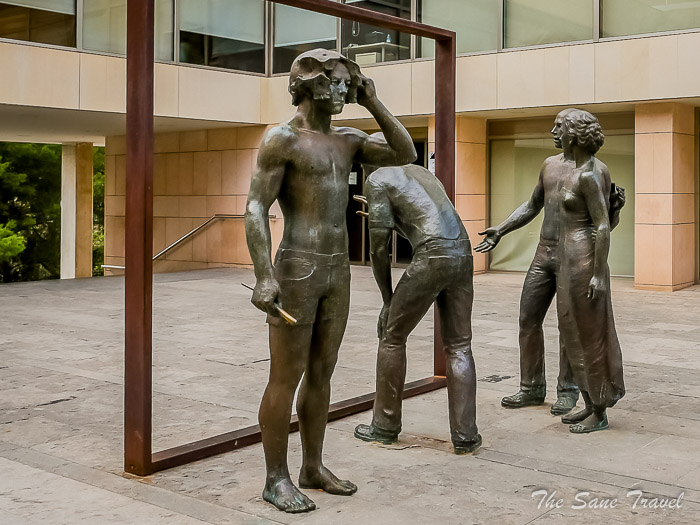 The scene captured in the photo features four figures: the painter, a couple, and a man. These life-size bronze figures are all engaged in observing a painting, symbolising a tribute to the critic, the spectator, and most importantly, the artist.
The scene captured in the photo features four figures: the painter, a couple, and a man. These life-size bronze figures are all engaged in observing a painting, symbolising a tribute to the critic, the spectator, and most importantly, the artist.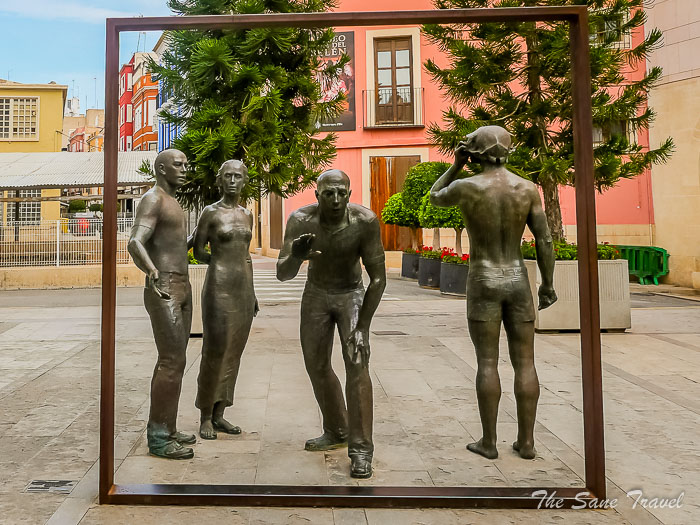 The artist uses his artwork to convey a message to society, starting with a canvas and then bringing it to life in bronze. The central focus of the sculpture is the painting, drawing the attention of all who view it.
The artist uses his artwork to convey a message to society, starting with a canvas and then bringing it to life in bronze. The central focus of the sculpture is the painting, drawing the attention of all who view it.
Address: Plaça de la Fruita
Practical tips
There is a convenient bus route connecting Alicante and Elche, as well as a direct bus from Alicante-Elche Airport. 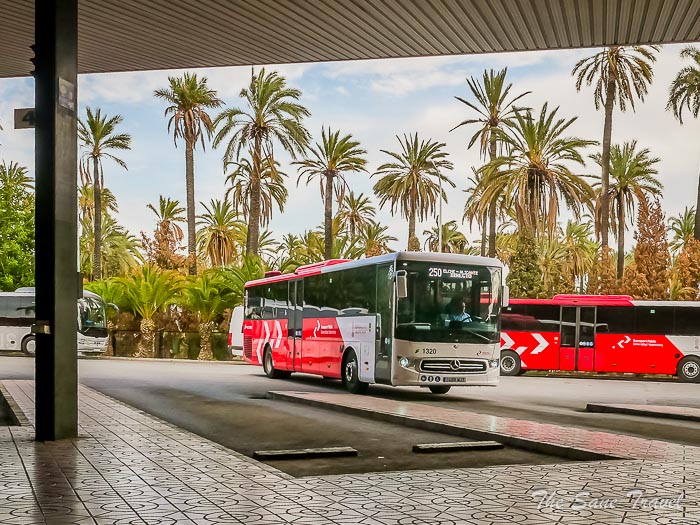 It is advisable to begin your sightseeing trip by visiting a Tourist Information Centre, where you can get helpful recommendations and information on the operating hours of museums and other attractions.
It is advisable to begin your sightseeing trip by visiting a Tourist Information Centre, where you can get helpful recommendations and information on the operating hours of museums and other attractions.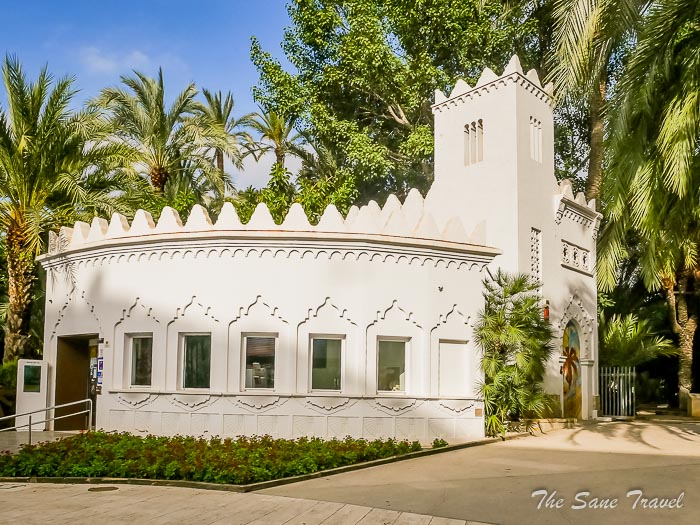
Like it? Pin it!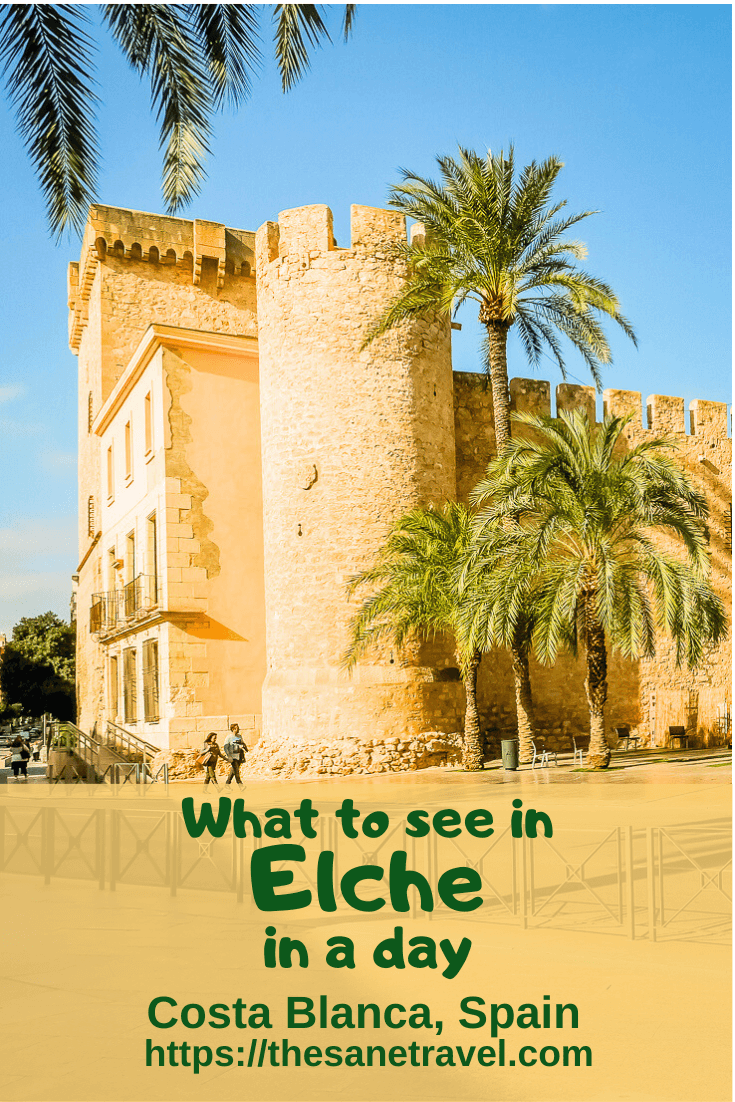
What did you think? Have you been to Elche? I would love to hear from you, so please add your comment below.
Author: Anita Sane
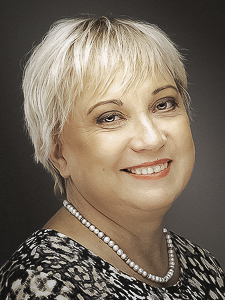
About the author
Anita is a part-time traveller, passionate photographer and a retired career woman from Latvia, travelling mostly solo for more than 15 years. She is a skilled travel planner who plans and executes her travels by herself. Anita wants to show you how to travel the world and open your mind to new experiences. Follow her on Facebook, Instagram, Pinterest, Twitter and Bloglovin.

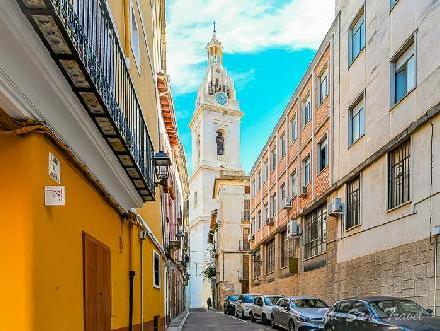
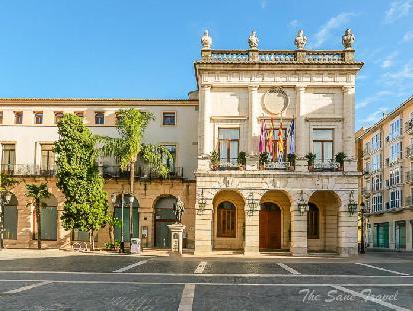
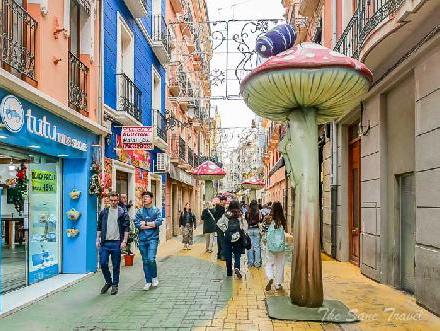
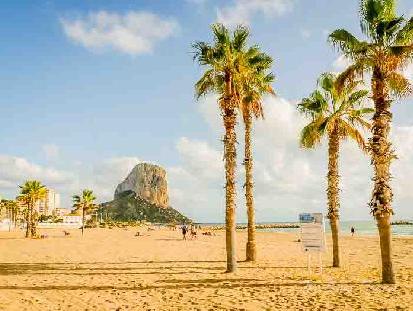
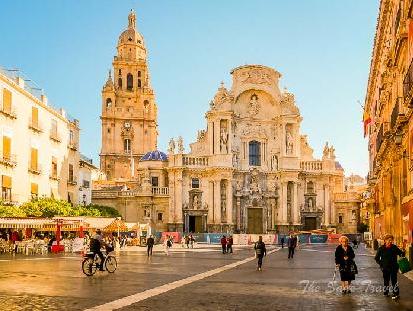
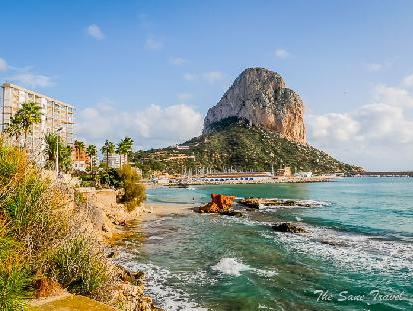
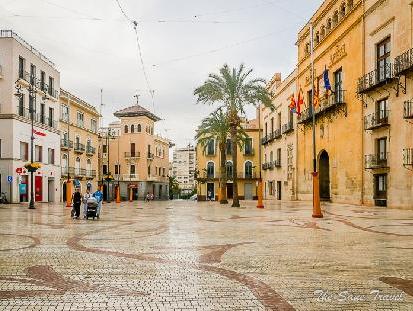
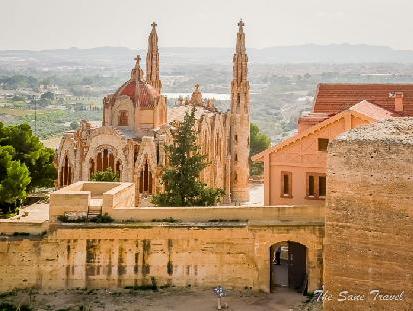

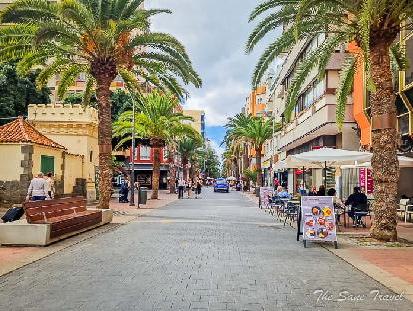

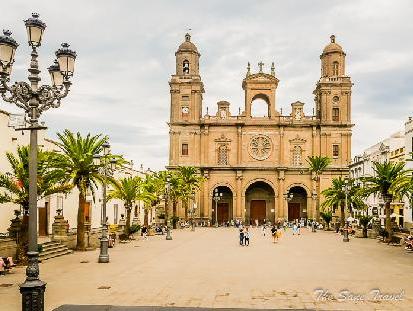
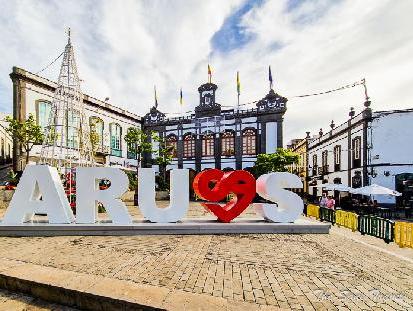
Report
My comments